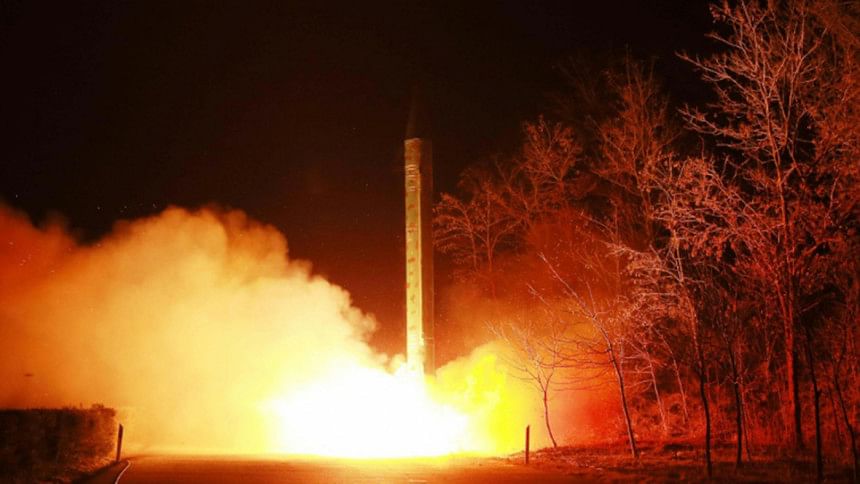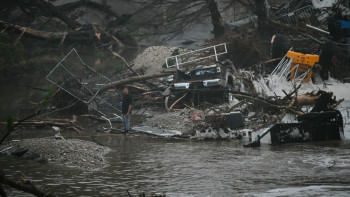North Korea fires five short-range missiles into sea

North Korea today fired five short-range missiles into the sea off its east coast -- the latest in a series of launches ordered by leader Kim Jong-Un amid rising military tensions.
They came just days after the North test-fired two medium-range missiles in what the UN Security Council described as an "unacceptable" violation of UN resolutions.
Tensions have been soaring on the divided Korean peninsula since the North carried out its fourth nuclear test on January 6, followed a month later by a long-range rocket launch that was widely seen as a disguised ballistic missile test.
The Security Council responded earlier this month by imposing its toughest sanctions on North Korea to date.
In recent weeks Pyongyang has maintained a daily barrage of nuclear strike threats against both Seoul and Washington, ostensibly over continuing large-scale South Korea-US military drills that the North sees as provocative rehearsals for invasion.
An official with South Korea's Joint Chiefs of Staff said the five short-range missiles were launched from near the eastern city of Hamhung, beginning just before 3:20pm (0620 GMT), and landed in the East Sea (Sea of Japan).
UPPING THE ANTE
He said analysts were still gathering intelligence on the precise missile type.
The North had fired two short-range missiles into the East Sea on March 10, using what state media described as a new high-calibre multiple rocket launcher.
Existing UN sanctions ban North Korea from conducting any ballistic missile test, although short-range launches tend to go unpunished.
Last Friday the North upped the ante by test-firing two medium-range missiles, which were seen as far more provocative given the threat they pose to neighbours like Japan.
They were the first medium-range launches for two years and followed an order from Kim Jong-Un for his military to prepare a series of missile launches as well as an eventual nuclear warhead explosion test.
China, the isolated North's sole major ally, urged it Monday to refrain from violating UN resolutions and called for calm in both Koreas.
At a meeting with senior aides earlier Monday, South Korean President Park Geun-Hye warned of a "very crucial time" for the Korean peninsula.
"Even after the international community adopted strong sanctions, North Korea continues to attempt reckless provocations as shown through Kim Jong-Un's recent order," Park said.
Seoul government officials, meanwhile, said they were fully prepared for the possibility of another North Korean underground nuclear test.
"We believe that a fifth nuclear test can take place right away," said Unification Ministry spokesman Jeong Joon-Hee.
The Defence Ministry also reiterated its assessment that the North was ready to carry out another test as soon as the leadership gave the order.
"In this regard our military, along with intelligence authorities in South Korea and the United States, are thoroughly monitoring such movements," said ministry spokesman Moon Sang-Gyun.
Analysts with the US-Korea Institute at Johns Hopkins University say recent satellite images show what appears to be test-tunnel maintenance activity at North Korea's Punggye-ri nuclear test complex.
"It is highly likely that site is capable of supporting additional tests at any time," one of the analysts wrote on the closely-followed website 38 North.

 For all latest news, follow The Daily Star's Google News channel.
For all latest news, follow The Daily Star's Google News channel. 







Comments